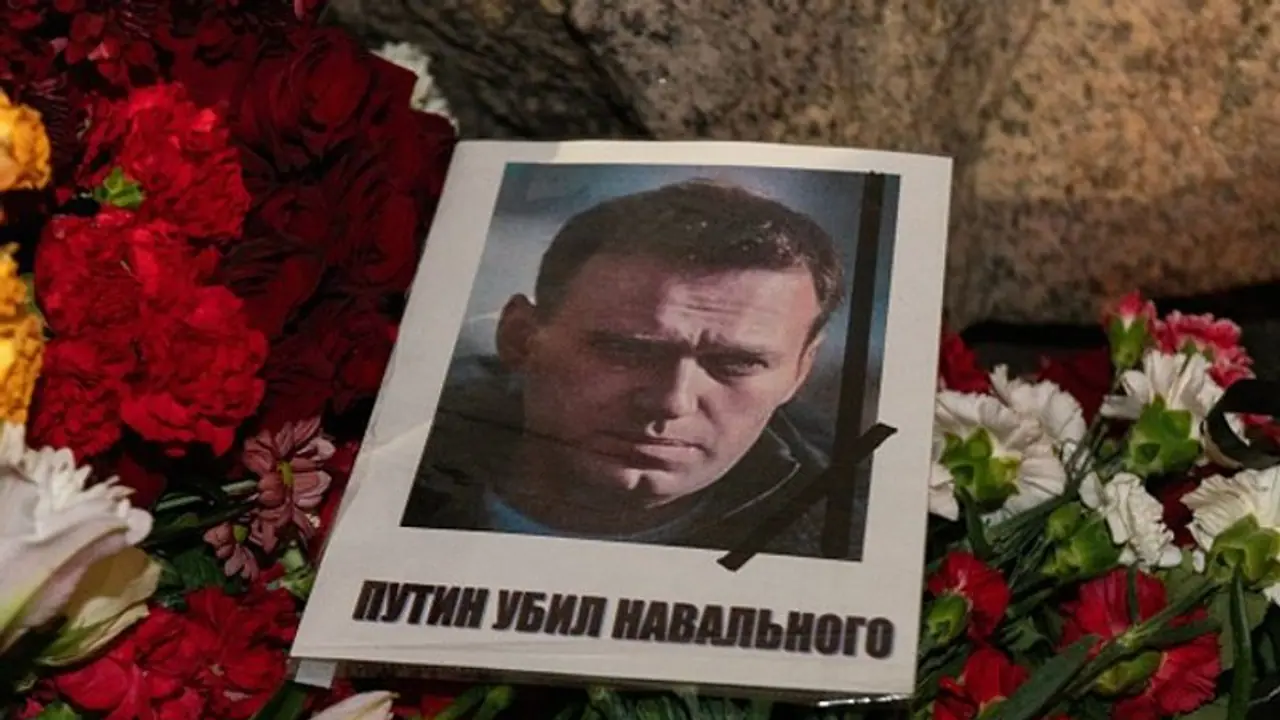Following the official confirmation of Alexei Navalny's death, his spokeswoman Kira Yarmysh has insisted that Navalny's body be promptly released to his family.
In a solemn turn of events, a representative for Alexei Navalny, known for his criticism of Vladimir Putin, officially confirmed the death of the prominent Russian opposition leader in prison at the age of 47 on Saturday. Navalny's passing occurred at 14:17 local time on February 16, according to a document provided to his mother, Lyudmila. Presently, his body is under the custody of investigators, marking a pivotal moment in the ongoing narrative of Navalny's contentious rapport with the Russian authorities.

Following the official confirmation of Navalny's death, his spokeswoman Kira Yarmysh has insisted that Navalny's body be promptly released to his family.
A release by the prison service on Friday said, "On 02/16/2024, in correctional colony No. 3, convicted Navalny A.A. felt ill after a walk, almost immediately losing consciousness. The medical staff of the institution immediately arrived, and an ambulance team was called. All necessary resuscitation measures were carried out, which did not give positive results. The doctors of the emergency medical service pronounced the convict dead."
Navalny, known for his unwavering criticism of President Vladimir Putin and his government, became a prominent figure in Russian politics and garnered widespread international attention for his activism. His relentless pursuit of justice and transparency in the face of corruption and political oppression made him a symbol of resistance against the Kremlin's authoritarian rule.
The confirmation of Navalny's death comes amidst a backdrop of intense scrutiny and concern regarding his well-being, particularly during his time in the Arctic prison.
Navalny's passing reverberates across Russia and the international community, signaling a significant loss for those who championed democracy and human rights. His death also underscores the dangers faced by individuals who dare to challenge the status quo in Russia's political landscape.
The circumstances surrounding Navalny's demise remain shrouded in mystery, prompting calls for a thorough and transparent investigation into the events leading up to his death. Speculation and suspicion regarding foul play abound, given Navalny's history of opposition to the Russian government and his previous experiences with alleged poisoning attempts.
As the world grapples with the news of Navalny's sudden death, questions linger about the future of the opposition movement in Russia and the ongoing struggle for democracy and freedom of expression. Navalny's legacy as a fearless advocate for change and accountability will undoubtedly endure, inspiring others to continue the fight for a more just and equitable society.
In the wake of Navalny's death, condolences and expressions of solidarity pour in from around the globe, highlighting the profound impact of his activism and the enduring resonance of his message. As his supporters mourn his loss, they remain steadfast in their commitment to upholding the principles for which Navalny so courageously stood.
Meanwhile, authorities across Russia have been swiftly removing flowers and tributes left in honour of Navalny, aiming to erase any public display of support for Vladimir Putin's foremost rival.
In Moscow, a video captured individuals, clad in dark attire with their hoods drawn up, systematically clearing the numerous tributes laid at the Solovetsky Stone, a monument commemorating victims of political repression during Stalin's era.
Carnations and roses adorned the stone and its surroundings, as well as another monument in St. Petersburg, where Navalny's supporters gathered to pay homage. Some placed photographs of the politician alongside small notes of protest and defiance.
Footage from Moscow depicted police barricading access to the site while the makeshift shrine was dismantled. Similar accounts surfaced from memorials across the country.
In a parallel scenario, individuals in civilian clothing, once again concealing their identities with raised hoods, removed tributes left at the bridge near the Kremlin, the site where opposition politician Boris Nemtsov was assassinated in February 2015. Law enforcement officials observed the scene without interference.
The concerted effort to eradicate these displays of remembrance underscores the authorities' determination to quash any potential focal points for dissent or protest.
